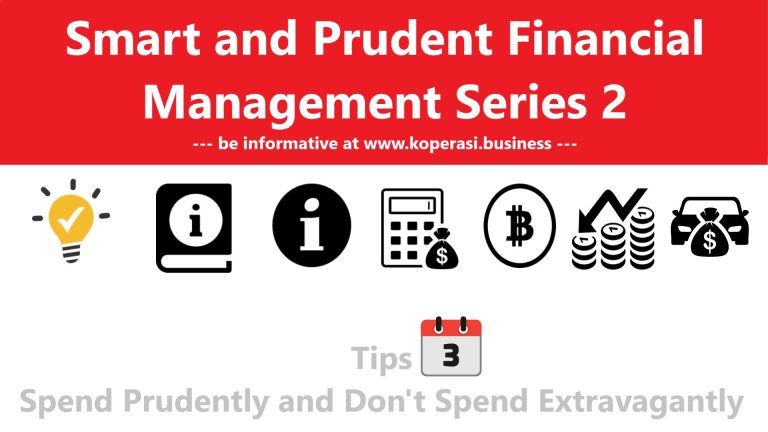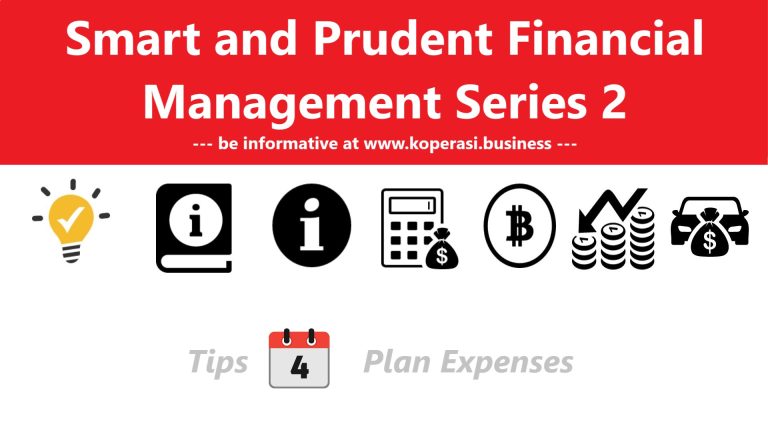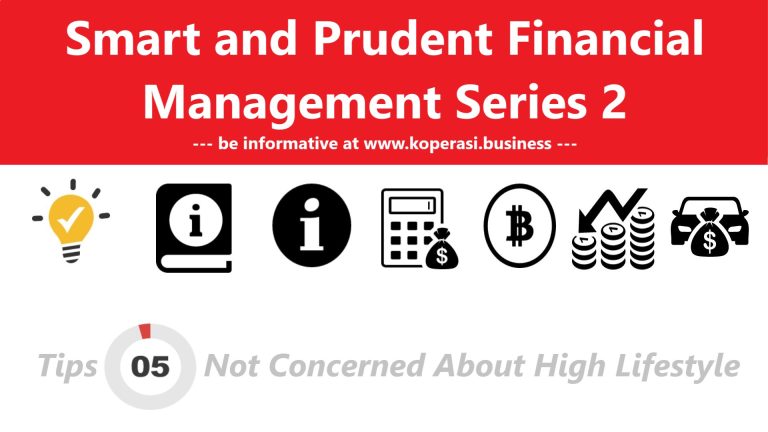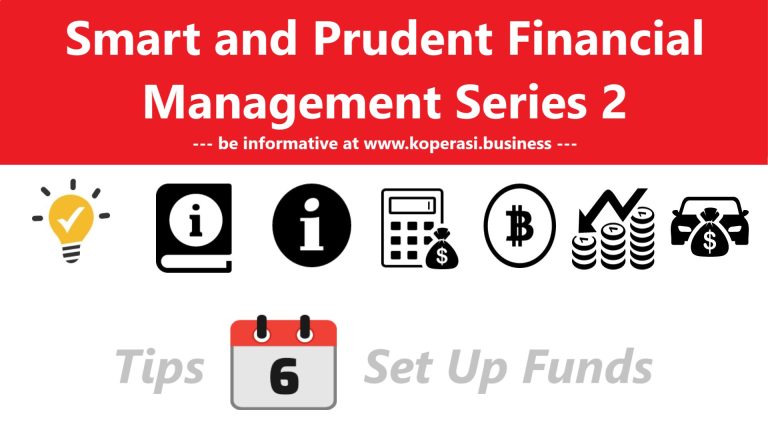Debt Management Discover the path to financial peace through effective debt management strategies. Stay on top of payments, manage bills, and budget for the future...
Money Management
In the dynamic landscape of personal finance, the principles of smart and prudent money management serve as guiding beacons, illuminating the path towards fiscal well-being and prosperity. At its core, smart financial management entails the strategic allocation of resources to achieve both short-term objectives and long-term aspirations. It involves a holistic approach to wealth stewardship, encompassing budgeting, saving, investing, and mindful spending.
Prudence, on the other hand, embodies a mindset of wisdom and foresight, transcending mere frugality or extravagance. It entails conscious decision-making rooted in an understanding of one’s financial goals, values, and priorities. Prudent individuals recognize the importance of balancing present desires with future needs, making informed choices that align with their overarching financial objectives.
Together, smart and prudent financial management form a synergistic framework for navigating the complexities of personal finance. By cultivating discipline, mindfulness, and resilience, individuals can chart a course towards financial security and abundance, empowering themselves to weather life’s uncertainties with confidence and grace. Whether it’s setting realistic budgets, building emergency funds, investing strategically, or practicing mindful spending, the journey towards smart and prudent financial management is a continuous evolution—one that promises rewards of lasting significance and fulfillment.
Foundational Principles
Expanding upon the foundational principles of smart financial management, let’s explore the next ten steps in detail:
Diversify Your Income Streams
Broaden your sources of income to reduce reliance on a single source. Explore opportunities for passive income, freelance work, or side businesses to supplement your primary income and increase financial stability.
Protect Your Assets with Insurance
Safeguard your assets and financial well-being with appropriate insurance coverage. Consider policies such as health insurance, life insurance, disability insurance, and property insurance to protect against unforeseen risks and liabilities.
Maximize Tax Efficiency
Optimize your tax strategy to minimize tax liabilities and maximize savings. Take advantage of tax-advantaged accounts such as 401(k)s, IRAs, and HSAs, and explore tax deductions and credits available to you.
Cultivate Financial Discipline
Practice discipline and self-control in your financial habits. Avoid impulsive purchases and stick to your budget, savings goals, and investment strategies even in the face of temptation.
Foster Financial Literacy
Continuously educate yourself about personal finance topics to make informed decisions. Stay updated on financial news, trends, and best practices through books, courses, seminars, and reputable online resources.
Build an Emergency Fund
Establish an emergency fund to cover unexpected expenses and financial emergencies. Aim to save three to six months’ worth of living expenses in a readily accessible account to provide a financial safety net.
Plan for Retirement
Start planning and saving for retirement as early as possible to secure your financial future. Contribute regularly to retirement accounts such as 401(k)s, IRAs, or pension plans and take advantage of employer matching contributions if available.
Give Back to Others
Practice generosity and philanthropy by giving back to your community and those in need. Donate your time, money, or resources to charitable organizations and causes that align with your values and priorities.
Review and Optimize Investments
Regularly review your investment portfolio to ensure it remains aligned with your financial goals and risk tolerance. Rebalance your portfolio as needed and consider diversifying across asset classes to minimize risk and maximize returns.
Seek Professional Advice
Consider seeking guidance from a qualified financial advisor or planner to navigate complex financial decisions. A professional can provide personalized advice, develop a customized financial plan, and help you achieve your long-term financial goals.
Plan Expenses
In the realm of financial management, planning expenses plays a pivotal role in achieving long-term stability and prosperity. While it’s tempting to spend impulsively or succumb to lifestyle inflation, prudent individuals recognize the importance of strategic expenditure planning. In this second installment of our Smart and Prudent Financial Management Series, we delve into the art of planning expenses, guiding you towards a path of financial mindfulness and empowerment.
Understanding the Importance of Expense Planning
Expense planning is more than just creating a budget—it involves a systematic approach to allocating financial resources in a manner that aligns with your priorities and goals. By proactively planning your expenses, you gain clarity and control over your financial trajectory, ensuring that every dollar serves a purpose and contributes to your overall financial well-being.
Assessing Your Financial Situation
Before embarking on an expense planning journey, it’s essential to conduct a thorough assessment of your current financial situation. Evaluate your income, expenses, debts, and savings to gain a comprehensive understanding of your financial health. Identify areas where expenses can be optimized or reduced, paving the way for more efficient resource allocation.
Setting Realistic Budgetary Targets
Once you’ve assessed your financial landscape, establish realistic budgetary targets that reflect your income, expenses, and financial goals. Adopt a flexible approach to budgeting, allowing for unforeseen expenses while prioritizing essential categories such as housing, utilities, food, transportation, and debt repayment. Strive for balance between meeting your immediate needs and allocating funds towards long-term objectives such as savings and investments.
Prioritizing Expenses
Not all expenses are created equal prioritization is key to effective expense planning. Distinguish between needs and wants, allocating resources towards necessities while exercising discretion with discretionary spending. Consider the impact of each expense on your financial goals and values, directing funds towards endeavors that align with your priorities and aspirations.
Implementing Cost-Saving Strategies
Incorporating cost-saving strategies into your expense planning toolkit can yield significant financial benefits over time. Explore opportunities to reduce recurring expenses such as subscriptions, utilities, and insurance premiums through negotiation, comparison shopping, or lifestyle adjustments. Embrace a minimalist mindset, decluttering your life of excess and focusing on experiences rather than material possessions.
Embracing Frugality Without Sacrifice
Frugality is often misconstrued as deprivation or sacrifice, but in reality, it’s about maximizing value and minimizing waste. Embrace frugality as a mindset shift, seeking creative ways to stretch your dollars without compromising on quality or satisfaction. Explore alternative avenues for entertainment, dining, and leisure activities that align with your budgetary constraints while fostering fulfillment and enjoyment.
Monitoring and Adjusting Expenses
Expense planning is an iterative process that requires ongoing monitoring and adjustment. Regularly review your spending habits, tracking expenses against budgetary targets to identify areas of overspending or inefficiency. Be proactive in addressing deviations from your financial plan, making necessary adjustments to reallocate resources and stay on course towards your goals.
Cultivating Financial Mindfulness
At its core, expense planning is about cultivating financial mindfulness—an awareness of how your spending habits impact your overall financial well-being. Practice conscious consumption, pausing to evaluate the necessity and value of each purchase before proceeding. Cultivate gratitude for the resources at your disposal, embracing a mindset of abundance rather than scarcity.
Set Up Funds
Setting up funds is a fundamental aspect of smart and prudent financial management, providing a framework for achieving both short-term and long-term financial goals. Whether it’s creating an emergency fund to safeguard against unexpected expenses or establishing investment accounts to build wealth over time, strategic fund allocation lays the groundwork for financial security and prosperity. In this segment of our Smart and Prudent Financial Management series, we delve into the importance of setting up funds and offer practical guidance for navigating this essential aspect of financial planning.
Understanding the Purpose of Funds
Funds serve as designated pools of money earmarked for specific purposes, ranging from immediate needs to future aspirations. By segregating funds according to their intended use, individuals can effectively allocate resources, minimize financial stress, and pursue their objectives with clarity and confidence. Whether it’s saving for emergencies, major purchases, retirement, or education, each fund plays a distinct role in achieving overall financial well-being.
Identifying Key Fund Categories
To effectively set up funds, it’s essential to identify key categories based on your unique financial circumstances and goals. Common fund categories include:
- Emergency Fund: A reserve of liquid assets set aside to cover unforeseen expenses such as medical emergencies, car repairs, or job loss.
- Savings Fund: A fund dedicated to achieving short-term financial goals, such as a vacation, home renovation, or down payment on a major purchase.
- Investment Fund: A portfolio of assets designed to generate returns and build wealth over the long term, typically allocated towards retirement savings, education funds, or other financial objectives.
- Debt Repayment Fund: A pool of funds designated for paying off outstanding debts, such as credit card balances, student loans, or mortgage payments.
- Specific Purpose Funds: Funds tailored to meet specific goals or aspirations, such as a travel fund, education fund for children, or healthcare fund for medical expenses.
By delineating funds into distinct categories, individuals can allocate resources strategically, prioritize financial goals, and track progress towards achieving them.
Establishing Fund Parameters
Once you’ve identified key fund categories, establish parameters for each fund to guide your savings and investment efforts. Determine the target amount for each fund based on factors such as your income, expenses, risk tolerance, and time horizon. Set realistic timelines for reaching your fund targets, taking into account both short-term and long-term objectives. Additionally, consider factors such as inflation, market volatility, and life events that may impact your fund allocation strategy over time.
Implementing Fund Allocation Strategies
With fund categories and parameters in place, it’s time to implement fund allocation strategies to achieve your financial goals. Allocate funds systematically, directing a portion of your income towards each designated fund on a regular basis. Automate contributions where possible to ensure consistency and discipline in your savings and investment efforts. Periodically review and adjust your fund allocation strategy as needed based on changes in your financial situation, goals, or market conditions.
Monitoring Fund Performance and Progress
Monitoring fund performance and progress is essential to ensuring that your financial goals remain on track. Regularly review the performance of each fund relative to its target amount, assessing factors such as growth, volatility, and liquidity. Track your progress towards achieving fund targets, celebrating milestones and making adjustments as necessary to stay aligned with your overarching financial objectives. Utilize financial tools and resources to streamline the monitoring process and gain insights into your fund’s performance over time.
Money Management: Summary
- Article Title: Money Management
- Category: #FinancialManagement
- Purpose: #GeneralInformation
Financial Management
Need help with financial management? We offer a range of solutions to help you manage your finances smarter. Get tips, strategies, and services tailored to achieve financial stability. Click below to learn more and start your financial journey today!
Boost Your Savings: Best Practices & Benefits
Saving Learn practical strategies for saving money and securing your financial future. Discover sustainable habits that help you grow wealth while making smart, eco-conscious choices....
Bankruptcy Challenges: Strategies for Best Financial Rebirth!
Bankruptcy Explore why bankruptcy poses life challenges. Discover insights on overcoming difficulties and rebuilding financial resilience. Life Difficult Bankruptcy can make life difficult because it...
Easy Side Income: Multiply Your Earnings Today!
Side Income Discover simple yet effective strategies to unlock additional income streams effortlessly. Explore practical tips and easy-to-implement methods to boost your earnings and attain...
Web Directories
Find the best resources tailored to your interests! Whether you’re searching for travel ideas, money-saving tips, fun hobbies, or trusted product reviews, we’ve got you covered. Our carefully curated recommendations help you discover new experiences and make informed decisions—effortlessly. Start exploring today!
- https://asiaworldtour.com: “Asia World Tour: Your Gateway to Asian and World Adventures”
- https://personalfinancingloan.com: “Personal Financing Loan: Your Path to Financial Freedom”
- https://hobbyforte.com: “HobbyForte: Discover Your Car Passion, Explore Your Interests”
- https://reviewsanything.com: “ReviewsAnything: Your Trusted Source for Honest Gadget Reviews”
- https://rumahmampumilik.com: “Rumah Mampu Milik: Your Affordable Homeownership Journey Begins Here”
- https://malaysiadigit.com: “MalaysiaDigit: Your Digital Destination for News and Insights”
- https://vipmalaysia.com: “VIP Malaysia: Elevate Your Experience in Malaysia”
- https://nordiyana.com: “Indulge in Elegance at Nordiyana: Latest Recipe and Culinary Inspirations”
- https://e-penyatagaji.com: “E-Penyata Gaji: Simplifying Payroll Management for You”
- https://googleasia.org: “Google Asia: Explore the World and Asia’s Wonders with Google Asia”
- https://malaysiafit.com: “Malaysia Fit: Your Partner in Health and Wellness”
- https://koperasi.info: “Koperasi: Building Communities, Empowering Lives”
- https://recipeinside.com: “RecipeInside: Unveiling Culinary Creations, Your Guide to Delicious Dishes”
- https://asiahealthcenter.com: “Asia Health Center: Your Source for Holistic Wellness Solutions”
- https://nationalhealthcenters.com: “National Health Centers: Your Source for Vital Health Information and Community Care”
- https://malaysiabit.com: “MalaysiaBit: Stay Informed, Stay Connected”
- https://epenyatagaji.com: “E-Penyata Gaji: Your Digital Payslip Solution”
- https://koperasi.work: “Koperasi Work: Collaborate, Innovate, Succeed”
- https://koperasi.business: “Koperasi Business: Driving Entrepreneurship, Fostering Growth”



